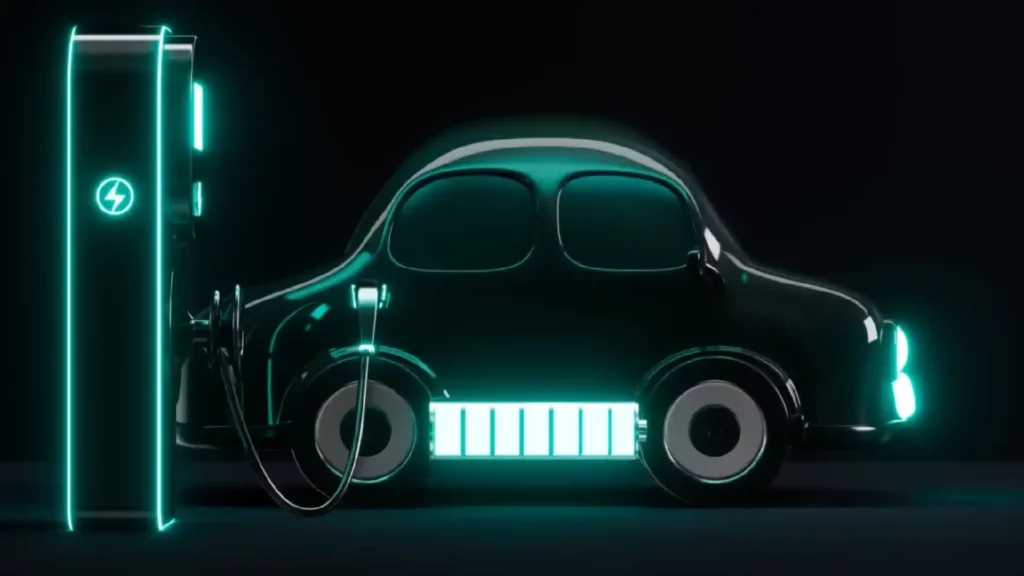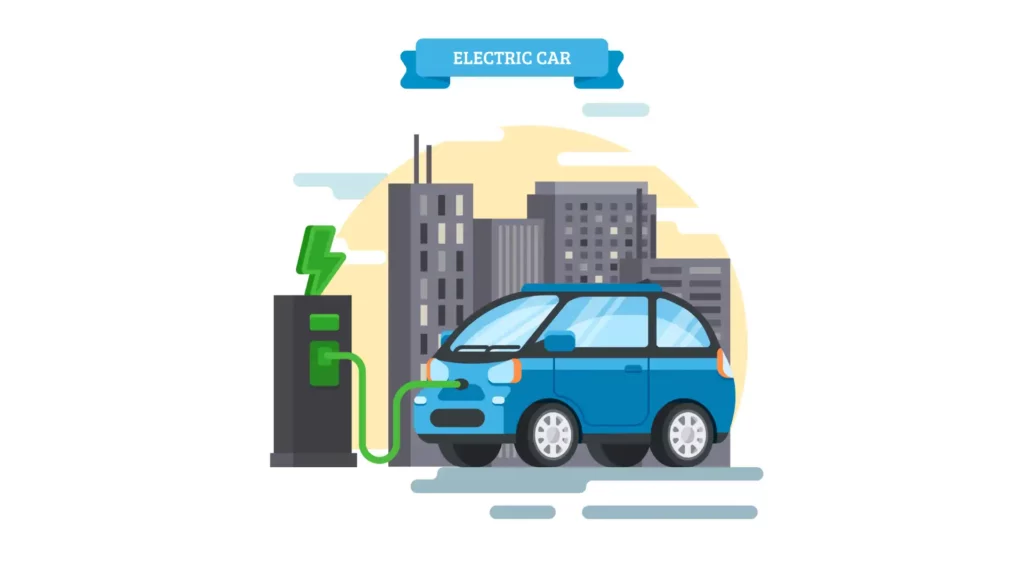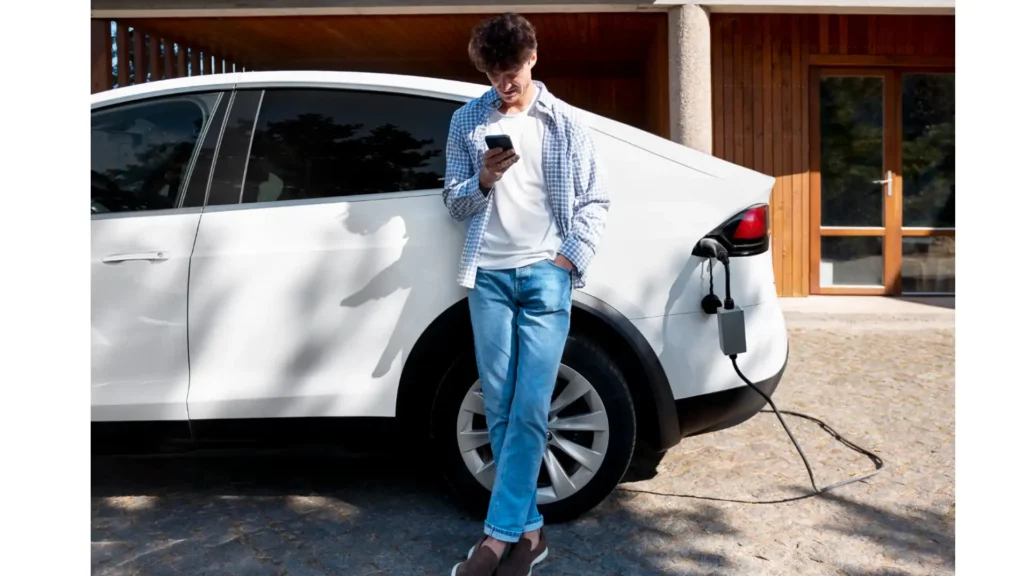Electric vehicles (EVs) are crucial in reducing carbon emissions and promoting cleaner transportation. The Massachusetts Electric Vehicle Tax Credit is a key program that incentivizes the adoption of EVs.
This initiative not only underscores Massachusetts' commitment to a greener future but also presents a valuable opportunity for residents to embrace sustainable transportation without compromising on efficiency or economic viability.
In this guide, we'll delve into the nuances of the Massachusetts Electric Vehicle Tax Credit, exploring its benefits, eligibility criteria, application process, and much more.
What is the Massachusetts Electric Vehicle Tax Credit?
The Massachusetts Electric Vehicle Tax Credit is a state-sponsored financial incentive aimed at reducing the upfront cost of purchasing or leasing a new electric vehicle.
By offering a tax credit to Massachusetts residents, the program makes EVs more accessible and affordable, encouraging a shift away from traditional gasoline-powered vehicles.
This initiative is a cornerstone of Massachusetts' broader environmental strategy, aiming to curb greenhouse gas emissions and foster a sustainable transportation ecosystem.

Benefits of the Massachusetts Electric Vehicle Tax Credit
- Immediate Cost Savings: The tax credit significantly reduces the purchase or lease cost of electric vehicles, making sustainable transportation more financially accessible to Massachusetts residents.
- Promotes Cleaner Air: By encouraging the adoption of electric vehicles, the tax credit contributes to a reduction in air pollution, leading to healthier communities across the state.
- Reduces Greenhouse Gas Emissions: Electric vehicles emit fewer greenhouse gases compared to traditional vehicles, and the tax credit plays a crucial role in Massachusetts' efforts to combat climate change.
- Increases Energy Independence: By supporting the shift to electric vehicles, the tax credit helps reduce reliance on imported oil, enhancing the state's energy security.
- Boosts Local Economy: The increased adoption of electric vehicles supports the growth of local EV-related industries, including manufacturing, sales, and services.
- Enhanced Vehicle Performance: Electric vehicles offer high performance with lower operating costs, and the tax credit makes it easier for consumers to enjoy these benefits.
- Supports Innovation: The incentive drives demand for advanced vehicle technologies, encouraging innovation in the automotive industry and supporting the state's green economy.

Electric Vehicle Tax Credit Massachusetts Eligibility Criteria
To qualify for the Electric Vehicle Tax Credit Massachusetts, applicants must meet specific criteria. These requirements ensure that the benefits of the program are directed towards new EV purchases or leases, promoting the adoption of the latest clean vehicle technologies. Key eligibility criteria include:
- Residency: Applicants must be Massachusetts residents.
- Vehicle Requirements: The program covers new electric vehicles, including both all-electric (battery electric vehicles or BEVs) and plug-in hybrid electric vehicles (PHEVs) that meet certain specifications.
- Purchase or Lease: Both purchased and leased vehicles are eligible, provided the lease term is for a minimum duration specified by the program.

Electric Vehicle Charging Stations in Massachusetts
Massachusetts is leading the way in expanding electric vehicle charging stations to support sustainable transportation.
With the rise in EV ownership, accessible charging infrastructure is crucial. The state is actively increasing the number of stations to meet the growing demand.
Here's an overview of electric vehicle charging stations in Massachusetts.
- Statewide Network Expansion: Massachusetts is investing in a robust expansion of its electric vehicle charging infrastructure. This initiative aims to ensure that EV drivers have convenient access to charging facilities, whether they are at home, at work, or on the go.
- Variety of Charging Options: Massachusetts has various electric vehicle charging stations that cater to different needs. They offer Level 1, Level 2, and DC Fast Charging options for home, public and workplace use, and long journeys. The state is dedicated to offering a wide range of charging solutions.
- Strategic Location Placement: EV charging stations in Massachusetts are strategically placed to cover major roads, cities, malls, parks, and government buildings. This ensures easy access for EV drivers traveling across the state.
- Public and Private Collaboration: In Massachusetts, the electric vehicle charging network is a joint effort between public entities and private businesses, which has greatly increased charging station availability through funding and investment.

How to Apply for the Massachusetts Electric Vehicle Tax Credit
Applying for the Massachusetts Electric Vehicle Tax Credit is a process designed to be straightforward, yet it requires attention to detail to ensure eligibility and compliance with state guidelines.
Here's a detailed step-by-step guide on how to apply for the tax credit, enhancing your understanding and helping you navigate the application process smoothly.
Determine Your Eligibility
Before initiating the application process, confirm that both you and the vehicle you've purchased or leased meet the Massachusetts Electric Vehicle Tax Credit eligibility criteria.
This includes being a resident of Massachusetts, and the vehicle being a new, qualified electric vehicle (EV) or plug-in hybrid electric vehicle (PHEV).
Gather Required Documentation
Collect all necessary documentation to support your application. This typically includes:
- Proof of residency in Massachusetts.
- A sales invoice or lease agreement showing the purchase or lease of a new qualified EV or PHEV. The documentation should detail the make, model, and year of the vehicle, along with the VIN (Vehicle Identification Number).
- A completed IRS Form 8936, if applicable, which is used for federal electric vehicle tax credits. This form can help demonstrate the eligibility of the vehicle for state credits as well.

Complete the Massachusetts Electric Vehicle Tax Credit Application Form
Download and fill out the application form available on the Massachusetts Department of Revenue website.
Ensure you provide accurate and comprehensive information regarding your vehicle purchase or lease, personal details, and any other required information.
- Compile Additional Supporting Documents
Depending on the specifics of your purchase or lease, additional documentation may be required. This could include a Manufacturer’s Certificate of Origin (for new vehicles) or additional forms specific to the tax credit program.
- Submit Your Application
Review the application package to ensure completeness and accuracy. Follow the submission guidelines provided by the Massachusetts Department of Revenue, which may allow for online or mail submissions. Ensure you keep copies of all submitted documents for your records.
- Await Confirmation and Credit Processing
After submission, there will be a processing period during which your application is reviewed for compliance with the tax credit program’s criteria.
Stay attentive to any communication from the Massachusetts Department of Revenue, as they may request additional information or documentation.

Massachusetts Electric Vehicle License Plate: A Guide to Recognition and Benefits
Introduction to Massachusetts Electric Vehicle License Plates
Massachusetts has introduced a special license plate for electric vehicles (EVs) to differentiate them from traditional cars.
This supports the state's dedication to sustainable transportation and provides advantages for EV owners.
Benefits of Having a Massachusetts Electric Vehicle License Plate
The Massachusetts electric vehicle license plate comes with a host of benefits aimed at encouraging the adoption of EVs and facilitating their convenience on the road. Here are some key advantages:
- Access to Designated Parking: EVs with a Massachusetts electric vehicle license plate often have access to preferential parking spaces, especially those equipped with charging stations. This can be incredibly convenient in urban areas and public facilities, reducing the time spent searching for a suitable parking spot.
- HOV Lane Access: In some areas, electric vehicles sporting the Massachusetts electric vehicle license plate may be granted access to High Occupancy Vehicle (HOV) lanes, regardless of the number of passengers. This can significantly reduce travel time during peak traffic hours.
- Recognition and Awareness: The distinctive design of the Massachusetts electric vehicle license plate helps in promoting awareness about electric vehicles among the general public. It serves as a visual reminder of the growing presence of EVs on the road and the state's support for clean transportation options.
How to Obtain a Massachusetts Electric Vehicle License Plate
Getting a Massachusetts electric vehicle license plate is easy. First, register your EV with the Massachusetts RMV and ask for the EV plate. You may need to show proof like the MCO or title stating it's electric.

Future Prospects of the Massachusetts Electric Vehicle Tax Credit
The Massachusetts Electric Vehicle Tax Credit is crucial for combating climate change and promoting sustainable transportation. Evolution of electric vehicles to keep up with technological advancements and environmental policy changes.
- Responding to Technological Advancements
As electric vehicle technology improves, the Massachusetts Electric Vehicle Tax Credit will likely change. This may involve expanding eligibility or adjusting the credit amount to keep up with advancements in battery life, charging times, and vehicle models.
- Aligning with Environmental Policies
The Massachusetts Electric Vehicle Tax Credit's future will be affected by changes in national and state green policies. With the need to address climate change growing, Massachusetts may offer stronger incentives for electric vehicle purchases, like higher tax credits or broader eligibility. The tax credit's alignment with environmental goals is vital for the state to meet its greenhouse gas reduction targets.
- Navigating Changes in Federal Support
Federal support for electric vehicles, like incentives and infrastructure investment, shapes state-level initiatives like the MA Electric Vehicle Tax Credit. Changes in federal policy may require adjustments at the state level to align with federal initiatives and benefit MA residents.
- Anticipating Market Dynamics
The EV market is changing due to consumer preferences, economics, and supply chains. The MA electric vehicle tax credit may need adjusting as adoption rates rise. Targeted programs for underserved communities or specific vehicles may be needed to address saturation or promote environmentally friendly choices.
FAQs: Massachusetts Electric Vehicle Tax Credit
Q1: Can used electric vehicles qualify for the Massachusetts Electric Vehicle Tax Credit?
No, the Massachusetts Electric Vehicle Tax Credit is designed specifically to encourage the purchase or lease of new electric vehicles. Used electric vehicles, even if they have not been previously registered in Massachusetts, do not qualify for this tax credit.
Q2: How much can I save with the Massachusetts Electric Vehicle Tax Credit?
The exact savings from the Massachusetts Electric Vehicle Tax Credit can vary based on the electric vehicle's make, model, and the terms of purchase or lease. The state sets specific credit amounts, which are subject to change, so it's important to check the latest guidelines provided by the Massachusetts Department of Revenue.
Q3: Are there any income restrictions for qualifying for the tax credit?
As of the last update, the Massachusetts Electric Vehicle Tax Credit does not impose income restrictions on applicants. However, tax credits and incentives are subject to legislative changes, so it's advisable to consult the most recent program details for any updates.
Q4: Can businesses apply for the Massachusetts Electric Vehicle Tax Credit?
Yes, businesses purchasing or leasing new electric vehicles for use in Massachusetts are eligible to apply for the tax credit. The same eligibility criteria apply to both individuals and businesses, including the requirement that the vehicle be new and meet specific electric vehicle standards.
Q5: Is the Massachusetts Electric Vehicle Tax Credit available for both all-electric and plug-in hybrid vehicles?
Yes, the tax credit is available for both all-electric vehicles (BEVs) and plug-in hybrid electric vehicles (PHEVs), provided they meet the program's eligibility criteria. The specific credit amount may vary depending on the vehicle type and its battery capacity.
Q6: What happens if the EV I purchase or lease is less expensive than the maximum tax credit amount?
If the purchase price of the electric vehicle is less than the maximum tax credit amount, you will only be eligible to claim a credit up to the actual cost of the vehicle. The credit cannot exceed the purchase price and is not refundable.
Q7: How do I claim the Massachusetts Electric Vehicle Tax Credit on my taxes?
To claim the tax credit, you will need to complete the appropriate sections of your Massachusetts state tax return, including any required documentation such as proof of purchase or lease. Detailed instructions are available through the Massachusetts Department of Revenue.
Q8: Can the Massachusetts Electric Vehicle Tax Credit be combined with other incentives?
Yes, the Massachusetts Electric Vehicle Tax Credit can be combined with other state and federal incentives for electric vehicles. This can include rebates, grants, or other tax credits designed to reduce the cost of owning an EV. It's beneficial to research all available incentives to maximize your savings.
Q9: How long will the Massachusetts Electric Vehicle Tax Credit be available?
The availability of the Massachusetts Electric Vehicle Tax Credit is subject to state budget allocations and legislative priorities. It's important to check the current status of the program through official state resources to ensure it is still being offered at the time of your purchase or lease.
Q10: Where can I find more information about eligible electric vehicles and the application process?
For a list of eligible electric vehicles and detailed information on the application process for the Massachusetts Electric Vehicle Tax Credit, visit the Massachusetts Department of Revenue's website or contact them directly. They provide comprehensive resources and assistance for applicants.
Massachusetts Electric Vehicle Tax Credit Conclusion
The Massachusetts Electric Vehicle Tax Credit offers a golden opportunity for residents to contribute to a more sustainable future while enjoying significant economic benefits.
By embracing electric vehicles, Massachusetts is paving the way towards a cleaner, greener, and more sustainable transportation landscape.
As we move forward, initiatives like the Massachusetts Electric Vehicle Tax Credit will continue to play a vital role in our collective journey toward environmental stewardship and energy independence.

